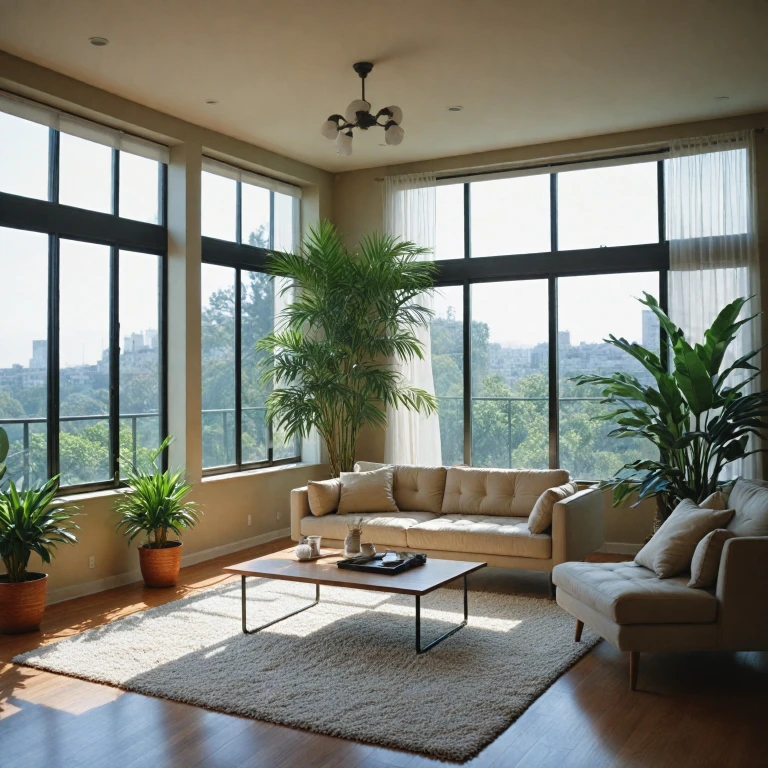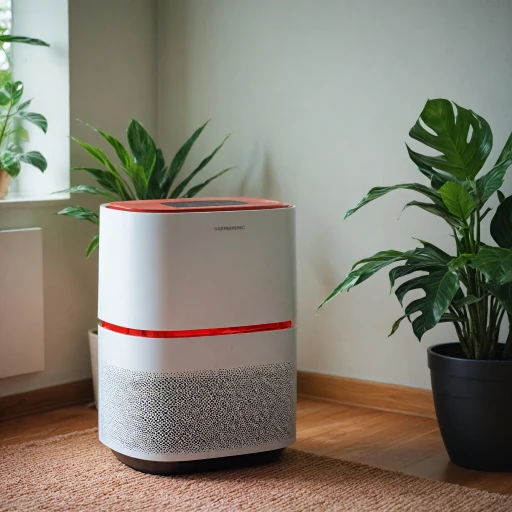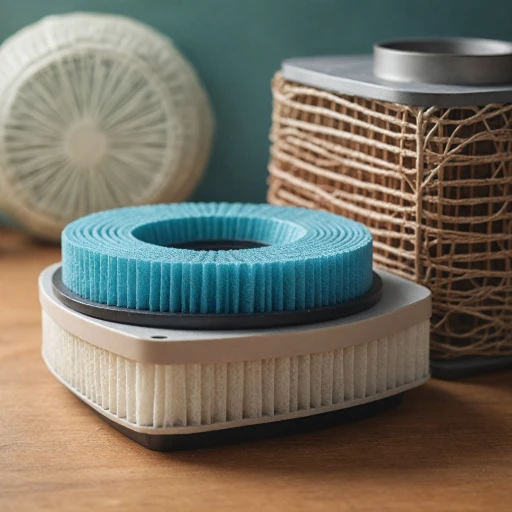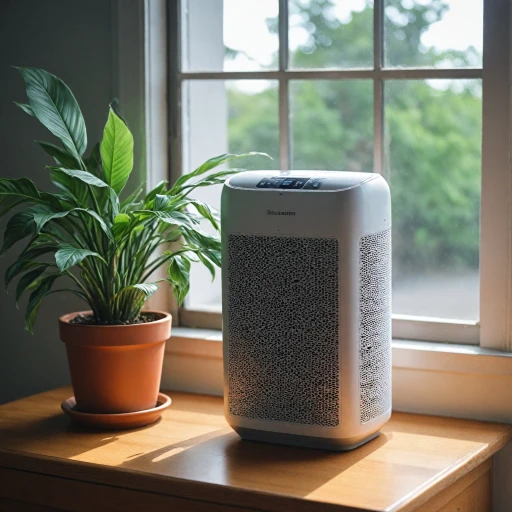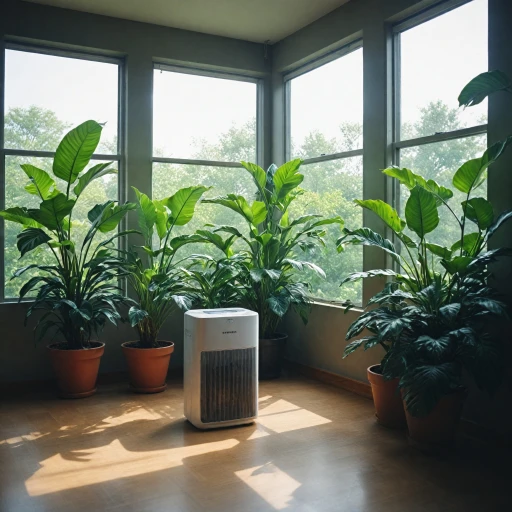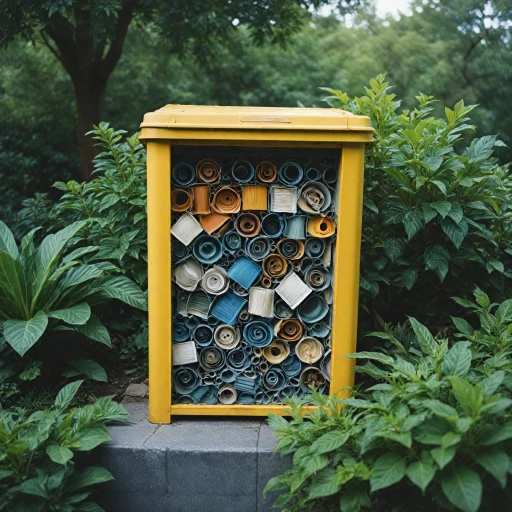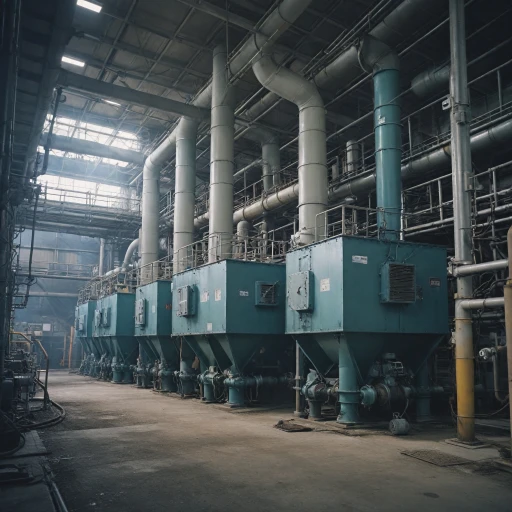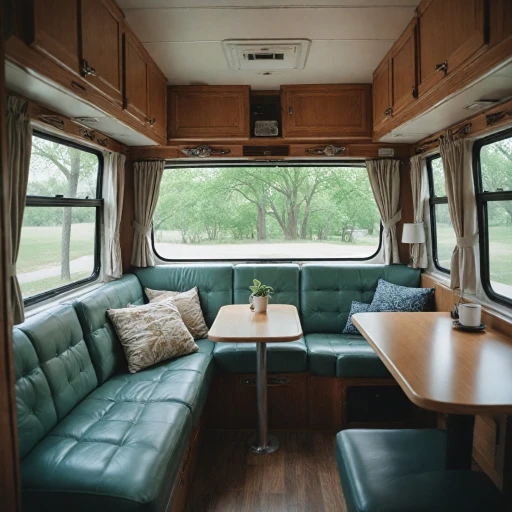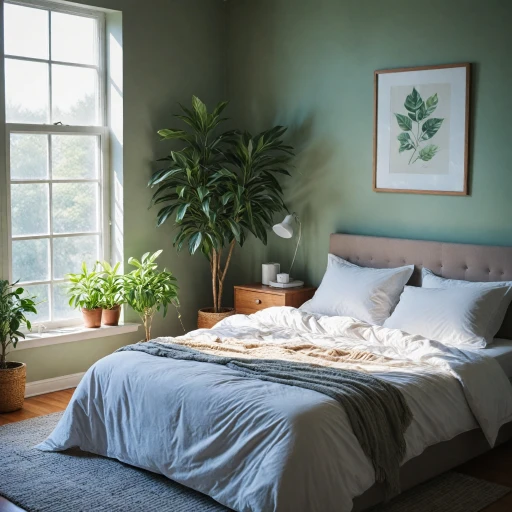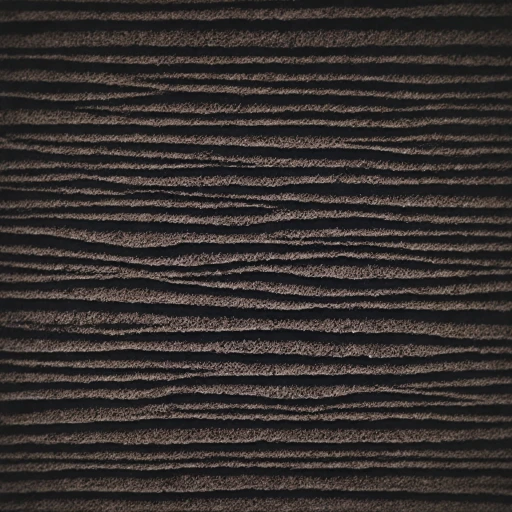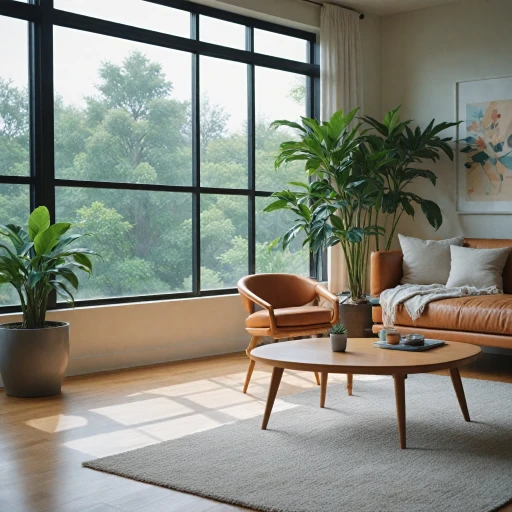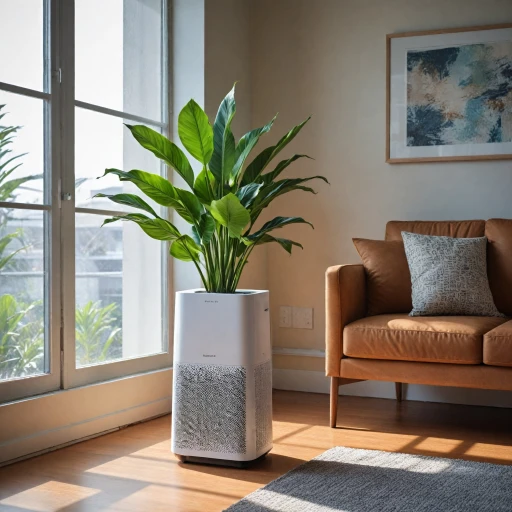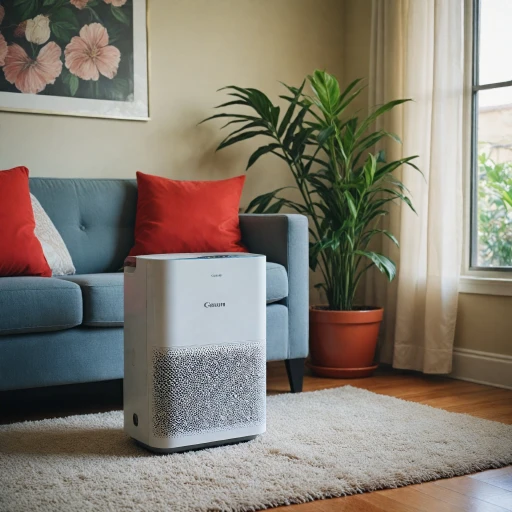
Understanding HEPA Filtration Technology
How Does HEPA Filtration Work?
HEPA, which stands for High Efficiency Particulate Air, is a filtration technology recognized for its high-air quality standards. The technology involves trapping microscopic particles that can float in your indoor air, including dust, pollen, and even some bacteria and viruses. Unlike standard filters, HEPA filters are constructed to capture at least 99.97% of particles sizing 0.3 microns, which is considered potentially harmful to human health.
In whole home systems, HEPA filtration is integrated with your HVAC system, ensuring that the air circulating throughout your home is as clean as possible. This contrasts with portable air purifiers, which work on single rooms. Comprehensive air purification can have long-term health and comfort benefits.
Components of a HEPA Filtration System
Typically, a HEPA filtration system consists of the main HEPA filter, pre-filters, and activated carbon filters. The pre-filters capture larger particles, helping extend the HEPA filter's life, while the activated carbon filters are designed for gas and odor removal, improving overall air quality.
Combining these components results in a robust air cleansing process that can significantly reduce pollutants in your whole house. This results in cleaner, healthier indoor environments and improved respiratory health, particularly for individuals with allergies or asthma.
Efficiency and Longevity
One of the reasons why HEPA filtration is favored is its efficiency in handling high volumes of air and its longevity when maintained correctly. Proper maintenance, which includes regular filter replacement and system checkups, ensures that your HEPA system remains effective over the years, minimizing operational costs.
While initial costs and installation considerations may deter some homeowners, the long-term enhancements in indoor air quality can justify the investment. Later sections will delve deeper into installation considerations, maintenance, and how HEPA systems stack up against other air filters in terms of performance and cost.
Benefits of a Whole Home HEPA Filtration System
Elevating the Air You Breathe
The decision to invest in a comprehensive home HEPA filtration system can significantly enhance the air quality within your living environment. These systems are specifically designed to filter out airborne particles that you cannot see but would rather not breathe in. A whole house HEPA filter connects directly to your HVAC system, ensuring that clean air circulates throughout your entire home.Advantages of Implementing a Whole House HEPA System
A whole home HEPA filtration system provides several distinct benefits:- Comprehensive Air Coverage: Unlike portable air purification units limited to one room, a whole house system ensures that every corner of your home is covered, addressing common issues like dust, pollen, and other fine particles.
- Enhanced Air Quality: By operating in line with your HVAC system, a HEPA system captures particles more efficiently, leading to improved overall indoor air quality.
- Convenience and Efficiency: With integration into your existing air conditioning or heating system, the need for multiple portable air purifiers is eliminated, providing a seamless and cost-effective solution.
Long-term Financial and Health Imperatives
While the initial cost might be higher than that of single-room purifiers, the long-term savings on maintenance and the potential health benefits far outweigh these concerns. A robust purification system can reduce the presence of allergens and pollutants that exacerbate respiratory conditions. For a more nuanced perspective on air purification in tandem with other solutions, consider exploring how a humidifier and air purifier combo might enhance your indoor environment as well.Installation Considerations and Costs
Key Installation Insights for a Whole Home HEPA Filtration System
When considering the installation of a whole home HEPA filtration system, understanding the nuances of integrating it into your existing HVAC system is crucial. This step involves several considerations to ensure optimal indoor air quality. Firstly, assess the compatibility of your current HVAC system with the HEPA filters. Most modern HVAC units can accommodate these filters, but older systems may require retrofits or adjustments. Consulting with an HVAC professional will help you determine the specific requirements for your house air system. A pivotal part of the installation process involves evaluating the size and capacity of the HEPA system. It's imperative to choose a system that matches the size of your home and its particular air purification needs. Oversized or undersized filtration systems can lead to ineffective air purification and unnecessary costs. Installation Cost- Initial Investment: The cost of purchasing a whole house HEPA system varies widely based on size and specifications. Basic units may start as low as a few hundred dollars, but comprehensive systems can run into thousands of dollars.
- Professional Installation: Hiring professional installers is recommended to ensure the system is correctly integrated with your HVAC infrastructure. This service can add to the initial cost but is crucial for effective and efficient operation.
- Potential Modifications: Depending on your specific setup, additional modifications might be necessary. For example, expanding ductwork or enhancing airflow ability can involve extra expenses.
Maintenance and Longevity of HEPA Systems
Ensuring Proper Maintenance for Maximum Efficiency
Maintaining your HEPA filtration system is key to ensuring it continues to operate at peak performance. Like any other household appliances, regular upkeep can significantly extend the life of your system and maintain high-quality air in your home. Here's what you need to know:- Regular Filter Replacement: HEPA filters are the heart of your purification system, and replacing them regularly is essential. Depending on the manufacturer's recommendations and your home's specific needs, these filters may require replacement every six months to a year. Consistently replacing your filters ensures the efficient capture of dust, allergens, and other particles.
- System Cleaning: Dust and debris can accumulate in the various components of your HEPA system. Periodic cleaning of the unit, including fans and coils, will help maintain smooth operation. This regular cleaning keeps the system from overworking, which can reduce wear and tear, thus prolonging longevity.
- Professional Servicing: Scheduling annual inspections by an HVAC professional can help identify potential issues before they escalate. A professional can ensure the entire system, including ductwork, is in prime condition, safeguarding your investment.
- Monitoring Air Flow: Checking airflow regularly lets you catch blockages or diminishing function early on. Signs that your system might need attention include noticeable dust buildup, reduced air quality, or increased allergy symptoms in household members.
Comparing HEPA Systems to Other Filtration Options
Comparing HEPA with Other Air Filtration Technologies
When considering an air purifier for your home, it's essential to compare the HEPA filtration system with other available technologies. Understanding the differences will help you decide which system is best for enhancing your indoor air quality.
- Efficiency: HEPA filters are known for their high efficiency in capturing particles. According to institutions like the Environmental Protection Agency (EPA), genuine HEPA filters must capture at least 99.97% of particles as small as 0.3 microns, including dust, pollen, and certain airborne pathogens. This is significantly higher compared to basic filters, which might not capture such small particles effectively.
- Targeted Filtration: While HEPA systems excel in particle removal, other technologies like activated carbon filters are better at addressing gases and odors. This is due to their ability to adsorb volatile organic compounds (VOCs). If odors or chemical pollutants are a concern, you might consider supplementing your HEPA system with an activated carbon filter.
- UV Filtration: Some air purifiers use ultraviolet light to kill bacteria and viruses. However, their effectiveness can vary based on the exposure time and intensity of the UV light. HEPA systems do not target living organisms in the same way but are excellent at trapping the particles that carry these pathogens.
- Cost Efficiency: HEPA filters can be more cost-effective in the long run for whole-home solutions, as they integrate with your existing HVAC systems and can filter the entire house air. However, the initial cost may be higher than portable air purifiers.
In summary, while HEPA filters provide high-quality air purification by efficiently capturing small particles, each type of air cleansing system has its strengths. Depending on your specific indoor air quality needs – whether it's reducing allergens, removing odors, or addressing mold (refer to earlier sections for more details) – you might opt for a combination of technologies to achieve optimal results for purifying your home air.
Choosing the Right HEPA System for Your Home
Prioritize Individual Needs and Circumstances
Choosing the right HEPA system for your home can seem daunting, given the various options available on the market. It's crucial to assess your unique needs and circumstances before making a decision. Consider the following aspects to guide your choice:- Home Size and Layout: The size and layout of your house significantly influence the type of HEPA filtration system you need. A whole home system might be more suitable for larger properties, optimizing air quality across multiple rooms.
- Specific Air Quality Issues: Identify the primary pollutants in your indoor air, such as dust, pet dander, or other particles. A targeted approach will ensure that the system effectively tackles these issues.
- Existing HVAC System: If you have an HVAC system installed, look for a HEPA filter that can integrate seamlessly. This integration can enhance the overall efficiency of your home's air purification system.
- Budget Constraints: Consider the initial cost, ongoing maintenance expenses, and potential energy consumption of the air purification systems. Understanding these financial aspects will help you find a balance between cost and quality.
- Lifestyle and Usage: Assess how often the house is occupied and the activities that occur in different rooms. For more transient areas, a portable air purifier might be more appropriate in addition to a whole house system.

